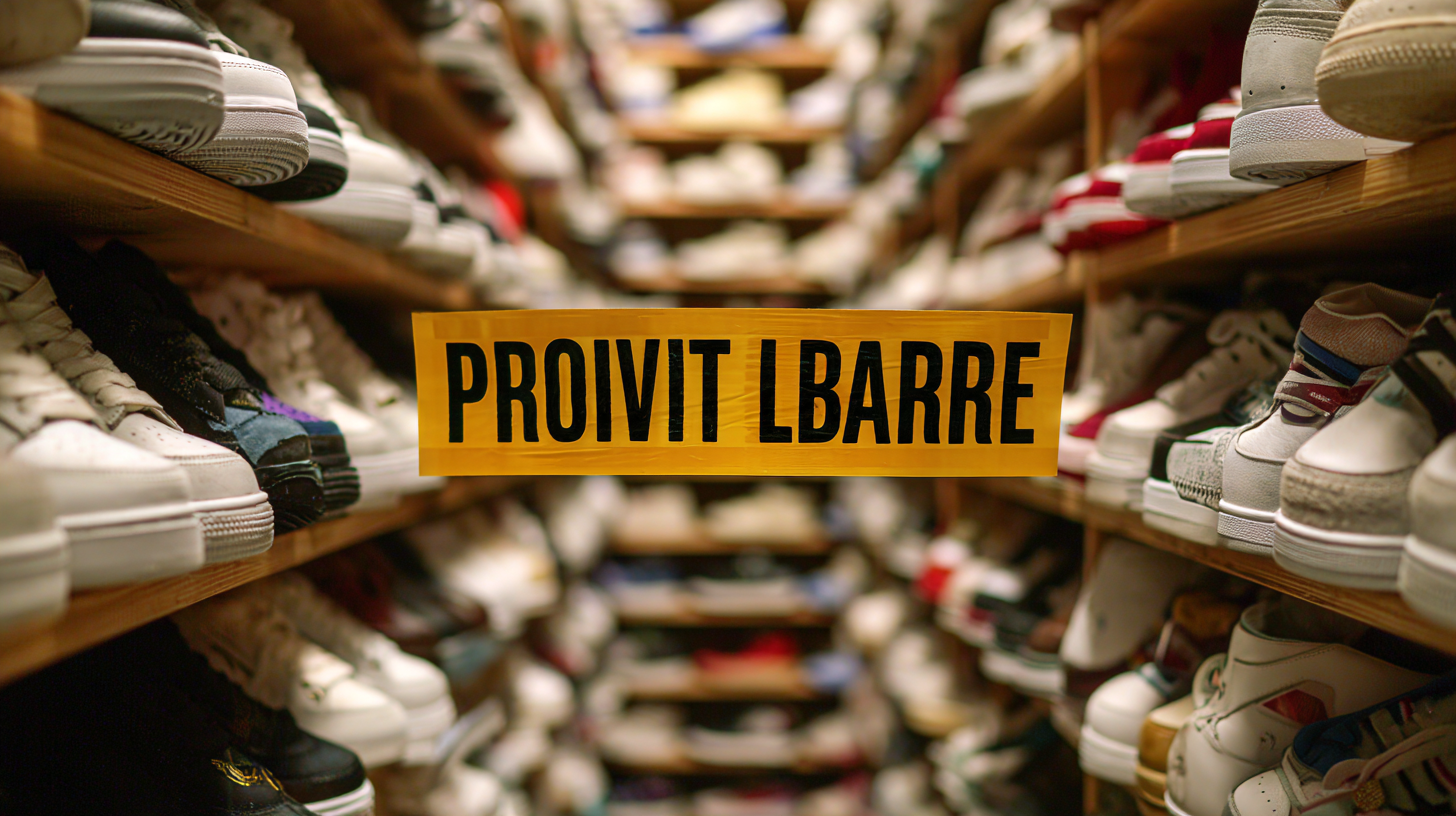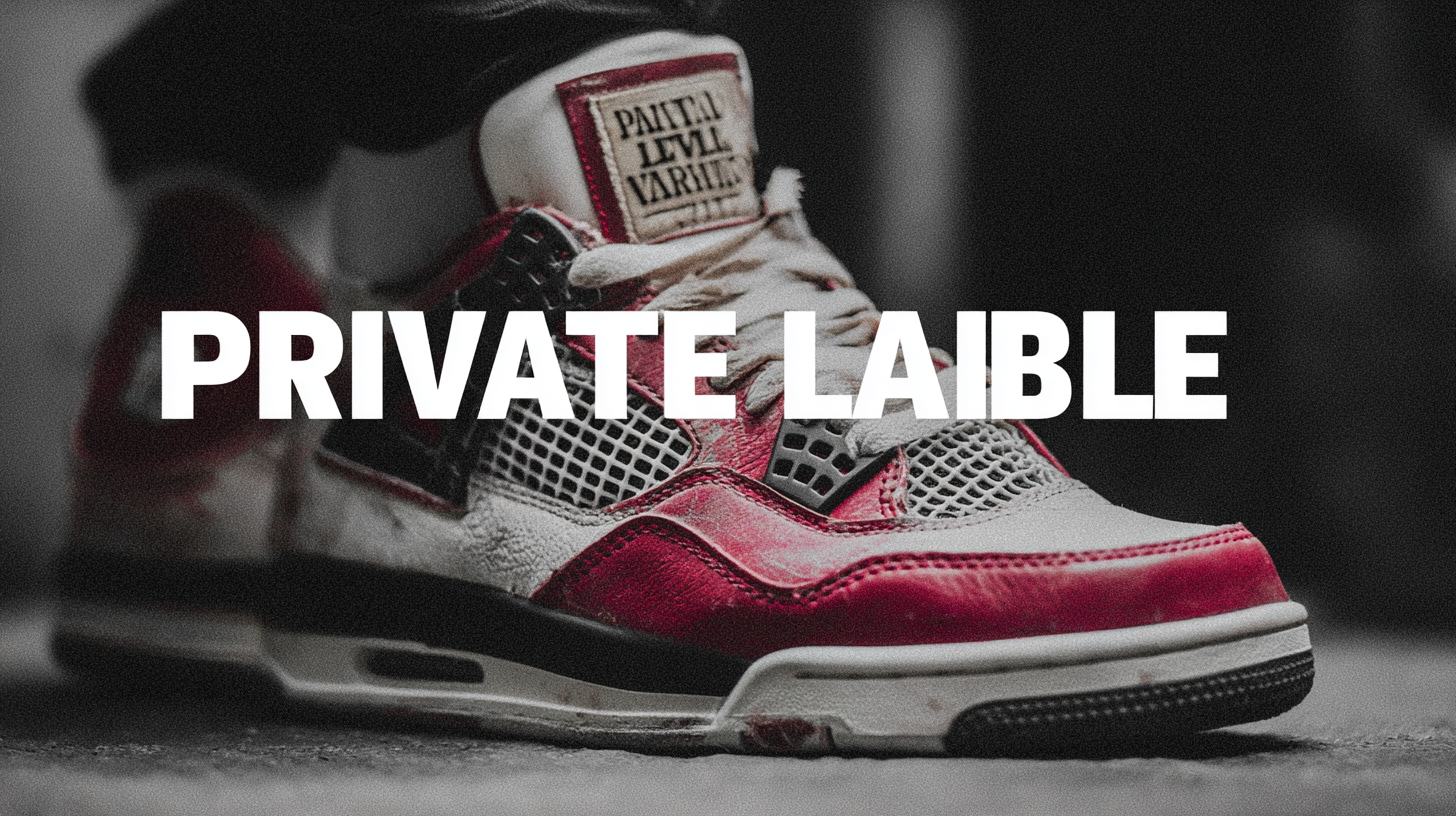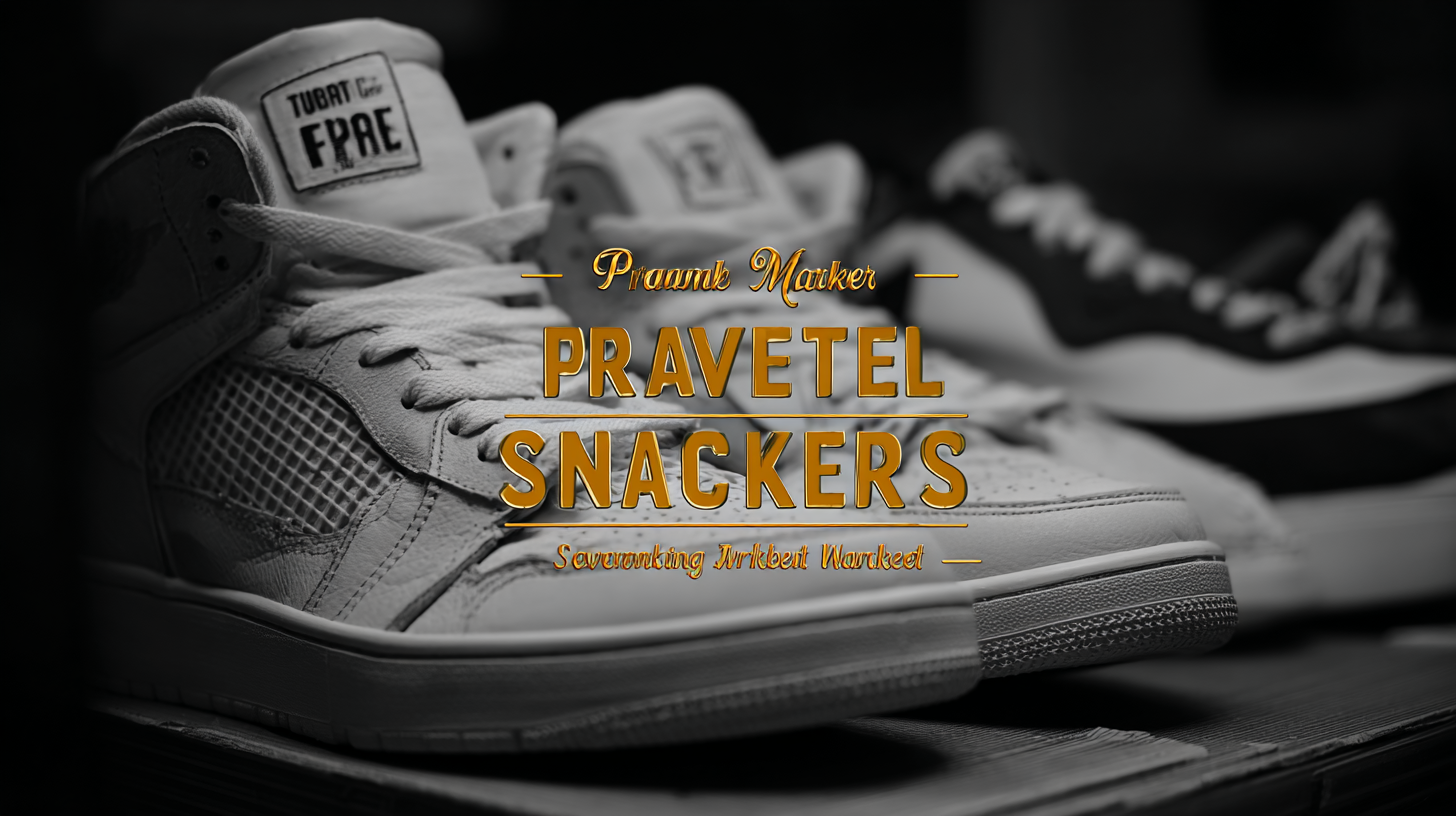
In today's highly competitive footwear industry, the demand for unique and high-quality products has led many entrepreneurs to explore the lucrative realm of Private Label Sneakers. This step-by-step guide is designed to help you navigate the exciting journey of creating your own brand of sneakers, from conception to market launch. By mastering the intricacies of private labeling, you can establish a distinctive presence that stands out in a crowded market.

With an array of options ranging from design and sourcing to marketing strategies and distribution channels, this blog will equip you with essential insights and practical tips to turn your sneaker vision into reality. Whether you're a seasoned business owner or a newcomer to the footwear scene, understanding the dynamics of Private Label Sneakers is crucial for building a successful brand that resonates with consumers. Join us as we delve into the steps that will set you on the path to sneaker stardom.
In 2025, the sneaker industry is witnessing an unprecedented surge in the popularity of private label sneakers. This trend can be attributed to consumers’ increasing desire for uniqueness and personalized style. With major brands saturating the market, shoppers are now gravitating towards private labels that offer high-quality designs at a more accessible price point. This evolution not only empowers brands to create shoes that resonate with niche markets but also allows them to build a loyal customer base seeking something distinct from mass-market options.
Tip: To successfully tap into the private label market, focus on understanding your target audience. Conduct thorough research to identify their preferences, including favorite materials, styles, and price ranges. Creating limited-edition releases can also generate buzz and exclusivity around your brand.
Moreover, the sustainability trend is transforming how consumers perceive footwear. Today’s shoppers are more environmentally conscious and prefer brands that practice ethical manufacturing. By incorporating eco-friendly materials and processes into your private label sneaker line, you can attract this growing demographic while enhancing your brand’s image.
Tip: Collaborate with sustainable suppliers and emphasize transparency in your production processes. Sharing your commitment to sustainability through marketing campaigns can significantly increase your appeal to socially responsible consumers.
Creating a successful private label sneaker brand requires a keen understanding of the market dynamics and a strategic approach to development. Recent reports indicate that the global sneaker market was valued at approximately $77 billion in 2021, projected to reach $120 billion by 2026, driven by a growing interest in athleisure and sustainable footwear options. To tap into this expanding market, focusing on key ingredients such as design, quality materials, and effective supply chain management is essential.
**Tip:** Research the latest trends in sneaker design and consumer preferences. According to a study by NPD Group, colorways and innovative materials heavily influence buying decisions. Incorporating popular elements like eco-friendly materials can significantly enhance your brand's appeal.
Additionally, solid partnerships with manufacturers and suppliers can determine the quality and cost-effectiveness of your sneakers. Industry insights suggest that brands focusing on direct-to-consumer (DTC) strategies can boost their profit margins by up to 40% versus traditional retail methods. Understanding your logistics and inventory systems will streamline your operations and ensure timely delivery.
**Tip:** Always prioritize product testing before launch. Gathering feedback through focus groups can provide invaluable insights that allow for adjustments in style and comfort, aligning your sneakers with consumer expectations.

Navigating the manufacturing process for private label sneakers can seem daunting, especially for new entrepreneurs in 2025. Before diving into production, it’s crucial to find the right manufacturers who align with your brand’s vision and values. Begin by conducting thorough research to identify quality producers with experience in sneaker manufacturing. Attend trade shows and industry events to meet potential partners face-to-face and assess their portfolios. Don’t hesitate to ask for samples to evaluate their craftsmanship and materials before making a decision.
Once you have selected a manufacturer, establishing clear communication is key. Create detailed specifications for your sneaker designs, including dimensions, materials, and branding elements. Developing a prototype is an essential step, as it allows you to test the design and make any necessary adjustments before mass production. Additionally, be prepared to negotiate minimum order quantities and pricing structures, as these can significantly impact your budget and profit margins. Staying organized and maintaining a collaborative relationship with your manufacturer will ultimately ensure that your private label sneakers meet your expectations and appeal to your target audience.

To successfully launch your private label sneaker brand, effective marketing strategies are essential. Start by identifying your target audience. Understanding who your potential customers are will help tailor your marketing messages and product offerings. Utilize social media platforms where your demographic is most active. Create visually appealing content that showcases your sneakers in various lifestyle scenarios. Engaging posts and targeted ads can enhance brand awareness and attract potential buyers.
Another crucial tip is to leverage influencer marketing. Collaborate with influencers who resonate with your brand values and aesthetics. Their endorsement can act as a powerful tool to build credibility and extend your reach to new audiences. Ensure that the influencers use your sneakers in authentic settings to create relatable content that connects with their followers. This organic promotion can significantly boost your brand visibility.
Finally, focus on building a strong online presence through your website and e-commerce platforms. Optimize your site for search engines and ensure a seamless shopping experience. Incorporate customer reviews and testimonials to build trust. Consider offering limited-time promotions or exclusive drops to create urgency and excitement. These strategies can help establish your brand and pave the way for a successful launch in the competitive sneaker market.
The sneaker market is undergoing a significant transformation influenced by emerging sustainability trends. With consumers becoming increasingly eco-conscious, brands are challenged to adopt greener practices in the production of private label sneakers. This trend is not only reshaping manufacturing processes but also creating a new demand for sustainable materials. For instance, more companies are exploring innovative fabrics and eco-friendly production techniques that minimize environmental impact, appealing to a demographic that values sustainability as much as style.
Furthermore, the rapid growth in segments such as casual and running sneakers indicates a robust market potential driven by increased health awareness and outdoor activities. It is projected that by 2025, the running shoe sector specifically will witness considerable expansion, attributed to an enhanced focus on performance and sustainability. As entrepreneurs enter this market niche, those who embrace sustainable practices while delivering high-quality and functional products will likely find themselves at a competitive advantage in a landscape that is increasingly oriented towards ethical consumerism.
